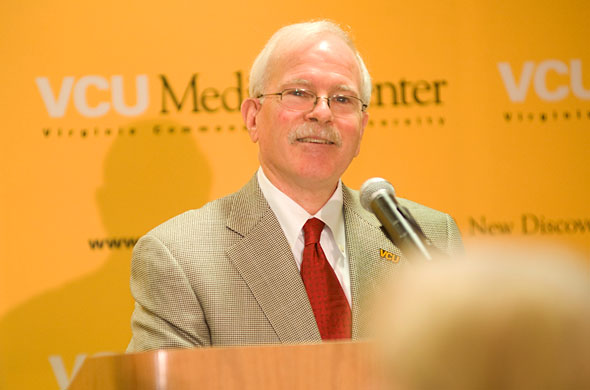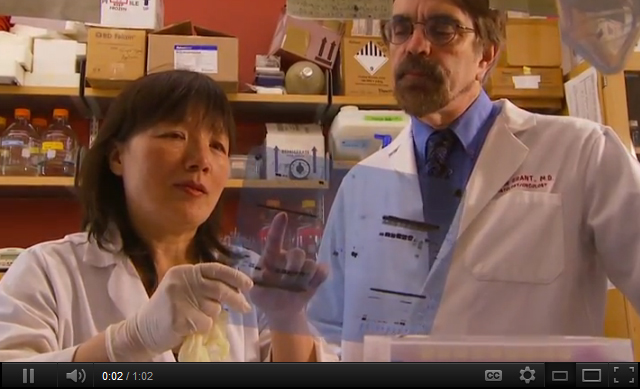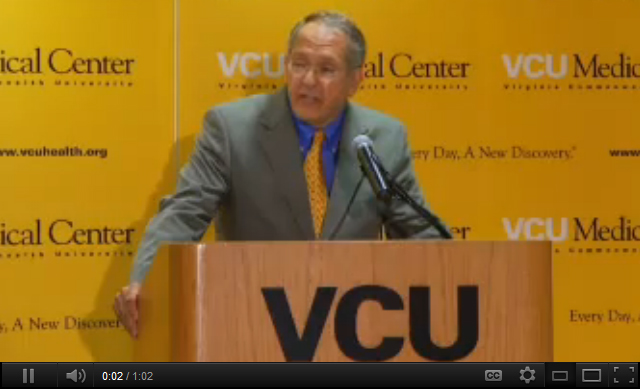
Translating discoveries into care
In 2010, VCU received the single largest federal grant in its history — a $20 million Clinical and Translational Science Award (CTSA) from the National Institutes of Health. In the year that followed, the Center for Clinical and Translational Research, home to VCU’s CTSA grant, firmly took its place among an elite consortium of 60 nationally prominent research institutions all focused on the importance of translational science.
“This has been an exciting year for the VCU Center for Clinical and Translational Research as we build and strengthen the bridge between basic science research and clinical applications,” said John Clore, M.D., director of CCTR and professor in the Department of Internal Medicine. “We’re working on our primary goals to enhance research infrastructure, promote collaboration among faculty, create and nurture community partnerships, and train tomorrow’s translational scientists.”
Translational research seeks to advance science and foster partnerships to speed innovation and accelerate laboratory discoveries into treatments for patients. Today’s medical translational research requires a collaborative and cross-disciplinary approach involving experts in many fields of study. At VCU, researchers from across the university receive support from CCTR in multidisciplinary research and benefit from Web-based data sharing, training and access to a rich array of resources, including a Research Incubator, Biomedical Informatics and Research Resources, and a central home for managing clinical trials.
Other key CCTR components include Community Engagement to translate evidence-based practices into the Greater Richmond community and to identify community-based needs to drive research efforts, as well as an education program that trains a new generation of researchers through a curriculum that integrates multiple disciplinary perspectives and provides strong technological and computational skills.
Together, these cores enable CCTR to create a culture of collaborative research at VCU and to work with other CTSA institutions within the nationwide consortium to transform the research and training environment to enhance the efficiency and quality of clinical and translational research.
“Much work has been done in the first year of the grant to coordinate our teams and services that we provide to faculty, community members, patients and students,” Clore said. “I am very excited about the transformative potential this groundwork over the past year will foster in innovative and advanced scientific research that will ultimately improve the delivery of health care that helps patients in our community and around the world.”




